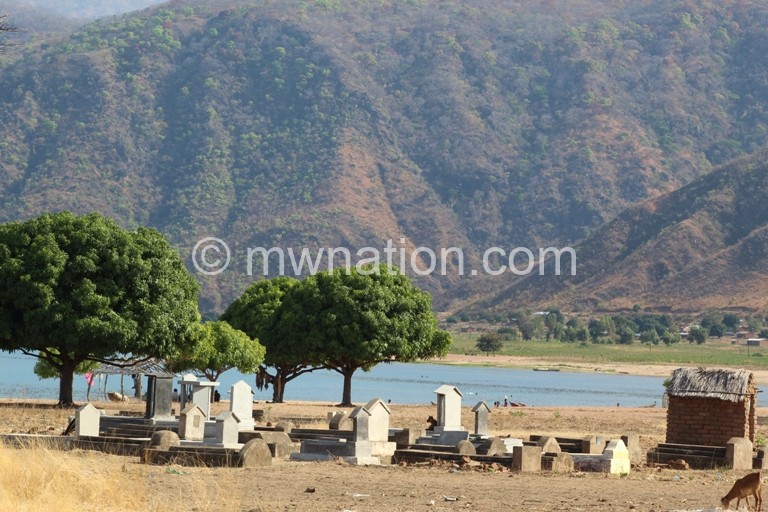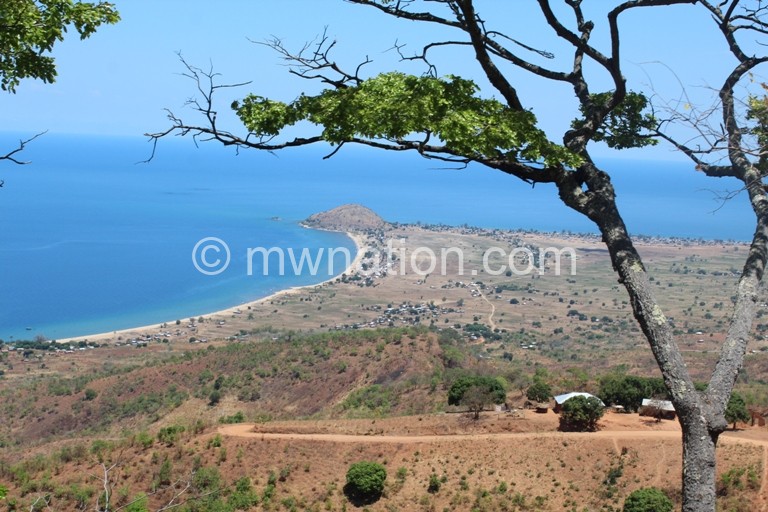Usisya’s blinding beauty
Graves on a pristine beach. Cows drinking fresh water on shore where an aura of fish drying in the sun and young men pushing boats into Lake Malawi for more catches is inescapable. Locals washing clothes while naked.
No luxurious resorts in view. Just cassava fields giving way to red-brick houses with iron sheets rapidly displacing grass-thatched huts in fishing villages.

The ironic sights dash the glow of Usisya in Nkhata Bay North, probably the most astonishing spot along the country’s largest lake—save for a road to forget and boat rides that strike first-timers like disasters about to happen.
For the residents, UT is to their beloved ‘Usisya Town’ what NY is to New York—a tag of fondness and belonging and dazzling beauty long ignored.
However, Usisya’s dazzling beauty has long been concealed by tricky water and road transport. A month before the May 21 2019 Tripartite elections, Vice-President Saulos Klaus Chilima, then a presidential candidate of UTM party, accused previous regimes of denying “these Malawians” a decent road and water vessels to open Usisya to the rest of the world.
Travellers from Mzuzu perch atop overloaded trucks bumping on a narrow, accident-prone earth road that trickily zigzags over hills and valleys fast losing their lushness. It takes about three hours to complete the nearly 60-kilometre road trip worth K4 500 on trucks hauling goods like the biblical Noah’s ark. However, this is the only option for travellers averse to equally packed boats locals use between UT and Nkhata Bay Town at nearly K7 500.
The shoreline population cries for a wide tarmac and reliable ferry to unlock the neglected postcard destination, where locals pay up to K150 for airtime worth K100 elsewhere.

They lament still being penalised for the sins of ex-minister Kanyama Chiume, who was expelled into exile following a Cabinet revolt against founding President Kamuzu Banda just months after independence 56 years ago. The dictator christened Kanyama public enemy number one until the return of democracy in 1993.
Nkhata Bay North constituents are murmuring that although both Kamuzu and Kanyama are dead and buried, a sour aftertaste of their historic spat persists.
“We don’t know what wrong we have committed, but lack of reliable roads and ships slows the development of Usisya as a top tourist destination,” says Usisya ward councillor Brown Chizeze.
As residents and visitors pay extra prices for basic goods, Feston Chimgolo of Chikuwali Village on the lakeside strip told Chill commodity prices get crazy during the rainy season when the road becomes too slippery for rickety vehicles hauling goods.
“Life isn’t easy because prices are high. Only the well-off can afford basics,” he said.
Shop owners say the price top-ups offset exorbitant transport costs for essential goods from Nkhata Bay and Mzuzu. Sugar bale and cement bags cost K1 000 each.
But all is not soon and gloom.
Usisya plays home to wonderful people, mostly clean, hospitable and hard working.
They go fishing day and night in the lake they consider their crop field and goldmine because many residents use earning from fish sales to buy foodstuffs their barren soils no longer produce.
Despite dwindling crop harvests and fish catches, warm-hearted roadside families still offer hungry passers-by some free lunch.
Matching its natural beauty, adorned with golden sands and rock outcrops, the tenacity of its people is epic.
The lakeside wonder without a full secondary school has produced professionals from accountants to teachers, nurses, businesspeople, engineers, artisans, aviation specialists and lawyers.
UT residents speak proudly of their parents who endured long walks to learn to read and write, sometimes braving sweltering sunshine with baskets of fish on their heads to fetch fees for their school-going children to learn.
This is a story of a people full of hope and determination—and the main thing that holds them back are governments that do not seem to hear their age-old cry.
A good transport system could open floodgates of economic activity in the potential tourism city left dimmed by bizarrely risky, underdeveloped escape routes.
Still, sons and daughters of UT marvel at its secret beauty. In their words, everything in Usisya, from its dazzling landscapes to women of marriageable age, will blow doubters to bits.
Golden Nyasulu, an engineer from Usisya, aptly notes: “The most beautiful place in Malawi is hiding in plain sight.
“In serious countries, that place would have been a city where tourists and people from Mzuzu and surrounding towns would be going to relieve their stress. Not in Malawi.”





